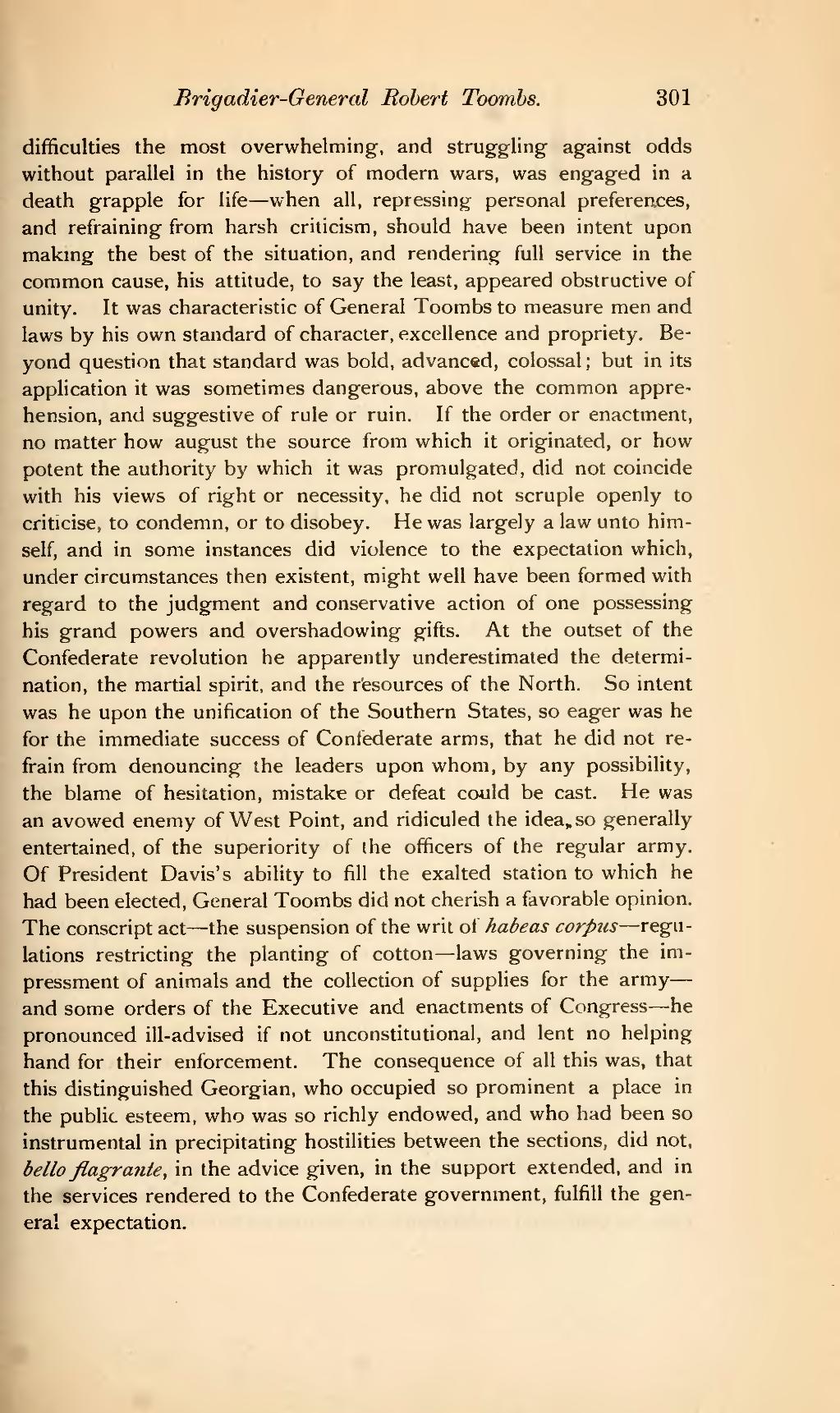Brigadier-General Robert Toombs. 301
difficulties the most overwhelming, and struggling against odds without parallel in the history of modern wars, was engaged in a death grapple for life — when all, repressing personal prefereaces, and refraining from harsh criticism, should have been intent upon makmg the best of the situation, and rendering full service in the common cause, his attitude, to say the least, appeared obstructive of unity. It was characteristic of General Toombs to measure men and laws by his own standard of character, excellence and propriety. Be- yond question that standard was bold, advanced, colossal; but in its application it was sometimes dangerous, above the common appre- hension, and suggestive of rule or ruin. If the order or enactment, no matter how august the source from which it originated, or how potent the authority by which it was promulgated, did not coincide with his views of right or necessity, he did not scruple openly to criticise, to condemn, or to disobey. He was largely a law unto him- self, and in some instances did violence to the expectation which, under circumstances then existent, might well have been formed with regard to the judgment and conservative action of one possessing his grand powers and overshadowing gifts. At the outset of the Confederate revolution he apparently underestimated the determi- nation, the martial spirit, and the r'esources of the North. So intent was he upon the unification of the Southern States, so eager was he for the immediate success of Confederate arms, that he did not re- frain from denouncing the leaders upon whom, by any possibility, the blame of hesitation, mistake or defeat could be cast. He was an avowed enemy of West Point, and ridiculed the idea, so generally entertained, of the superiority of the officers of the regular army. Of President Davis's ability to fill the exalted station to which he had been elected, General Toombs did not cherish a favorable opinion. The conscript act — ^the suspension of the writ of habeas corptis—r&gw- lations restricting the planting of cotton— laws governing the im- pressment of animals and the collection of supplies for the army — and some orders of the Executive and enactments of Congress — he pronounced ill-advised if not unconstitutional, and lent no helping hand for their enforcement. The consequence of all this was, that this distinguished Georgian, who occupied so prominent a place in the public esteem, who was so richly endowed, and who had been so instrumental in precipitating hostilities between the sections, did not, be Ho flagrante, in the advice given, in the support extended, and in the services rendered to the Confederate government, fulfill the gen- eral expectation.
